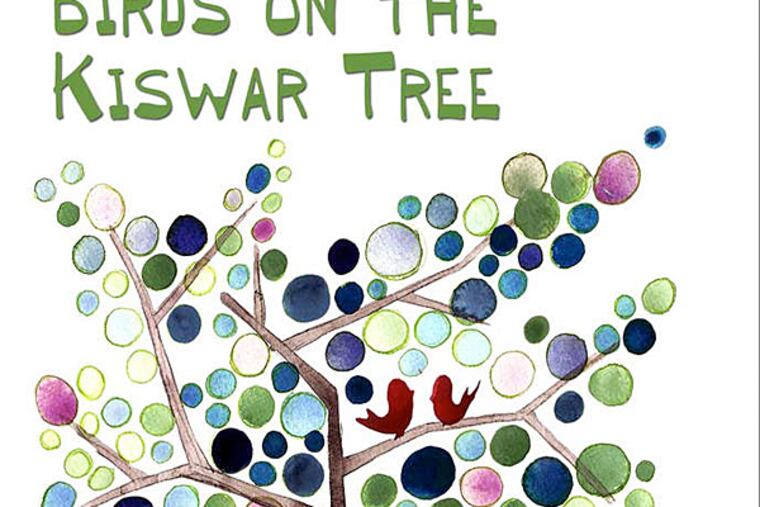Lynn Levin's resonant translations of Odi Gonzales' 'Kiswar Tree'
Peruvian poet Odi Gonzales seeks to reclaim what was once thought lost. These well-considered translations of Gonzales' collection Birds on the Kiswar Tree by Lynn Levin, a Delaware Valley poet, writer, translator, and instructor (at the University of Pennsylvania and Drexel University), give us unprecedented access to these multi-voiced Gonzales poems.

Birds on the Kiswar Tree
nolead begins By Odi Gonzales
Translated by Lynn Levin
2Leaf Press. 140 pp. $18.99 nolead ends
nolead begins
Reviewed by
David R. Stampone
Peruvian poet Odi Gonzales seeks to reclaim what was once thought lost. These well-considered translations of Gonzales' collection Birds on the Kiswar Tree by Lynn Levin, a Delaware Valley poet, writer, translator, and instructor (at the University of Pennsylvania and Drexel University), give us unprecedented access to these multi-voiced Gonzales poems.
It's the first book of poetry published in English along with the original Spanish by the award-winning Gonzales, himself a translator and instructor (currently at New York University) who has earned graduate degrees Stateside and in his native Peru.
Born in Cusco, capital of the Inca empire, Gonzales is a keen scholar of his homeland's pre-Columbian culture, tracking it through Spanish conquest (1532-72), Peru's colonial era (until 1824), and into today. He chiefly writes in Spanish and Quechua, the enduring language of the Inca. Kiswar Tree was first published in Peru as La Escuela de Cusco, taking its name from Peru's early colonial-period tradition of indigenous painters - largely illiterate, thus anonymous - who produced telling retablos, following instructions by art-minded Spanish clerics.
As translator Levin aptly puts it, the book offers a "living and talking museum . . . of lyric poems based on works of religious fine art [that] enact the piety and secret rebelliousness of these artists." In "The Expulsion From Paradise: A Study - the Studio of the Master of Acomayo," an unknown painter declares that "this Eden abounds/ In kiswar trees/ hordes of parrots and ñukchu flowers" - referring to his painting's Andean flora and fauna. At the same time, an italicized other voice delivers repressive church dictates: "we hereby command you may paint/ only what the Scriptures say."
The striking "Baradiel Loading Gunpowder into His Harquebus: Wall Vignette - Chapel of Sangarará" has an apocryphal archangel declaring "Soy el bastardo sin linaje" - "I am the bastard bereft of my heritage," as Levin translates it; "In their language the parishioners/ mispronounced/ my outlawed name." In the 1530s, rebellious Inca emperor Manco Yupanqui orated that the Spanish "will force us to worship their gods . . . do what you have to do in front of them, but keep our ceremonies and our gods hidden away in your hearts." The poem's next lines echo the covert defiance of Manco's stirring words, in Baradiel's analogous voice: "Anonymous, unbroken/ I recline in the soft grass . . . "